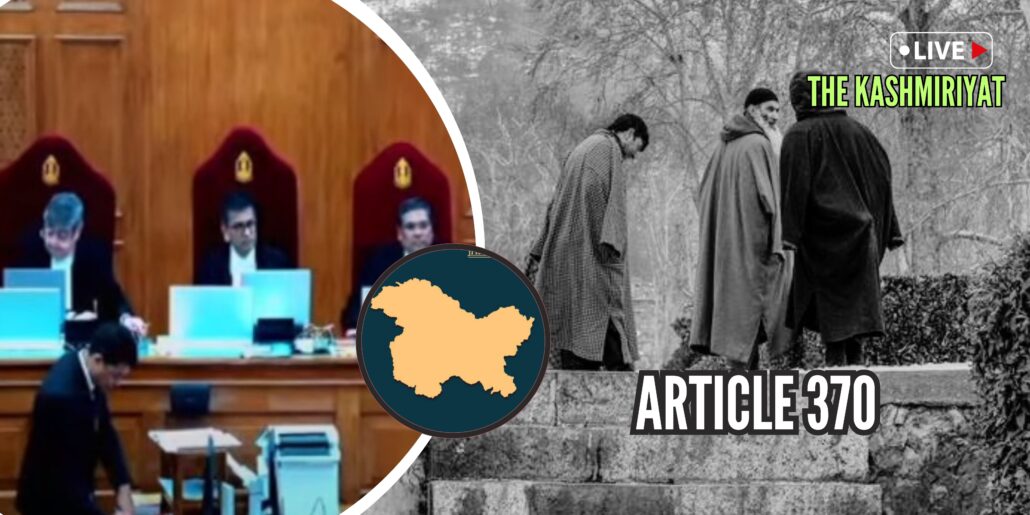
The Supreme Court of India presently hearing a bunch of petitions challenging the Article 370 abrogation on Tuesday observed that anyone supporting or opposing the abrogation is not supporting a “secessionist” agenda.
Hearings on Day 15 began on a fiery note when the defendants and petitioners argued over the affidavit filed by petitioner number 1 Mohammed Akbar Lone, senior JKNC leader, who was accused by the centre of raising pro-Pakistan slogans.
Senior Advocate Kapil Sibal said that what was unfolding in the court was merely for grabbing headlines. “All tis is being televised, let us refrain from doing all this,” he said.
During this a lawyer, who represented an intervener, Roots in Kashmir, a pandit outfit was silenced by the Chief Justice of India for his repeated disturbances. “Please do not interrupt now, there is a boundary,” CJI said angrily.
He then went on wit his rejoinder and said that all princely states went through merger agreements and there was no exception except Jammu Kashmir. “This shows that merger was never contemplated except in terms of 370. All the others became through proclamation part of the states and then became part of B states,” senior advocate Sibal argued.
Sibal argued that Bilateralism is at the heart of the integration process adding, “There can’t be a unilateral act by the parliament.”
He said that 370 is only a process of integration. We’re dealing with a process adopted by government of India consistent with this process of integration. There is no unilateral declaration ever in 370. “Article 370 has two colons, the rest are all semi-colons. The two colons reside in (d) and (3),” said Sibal.




